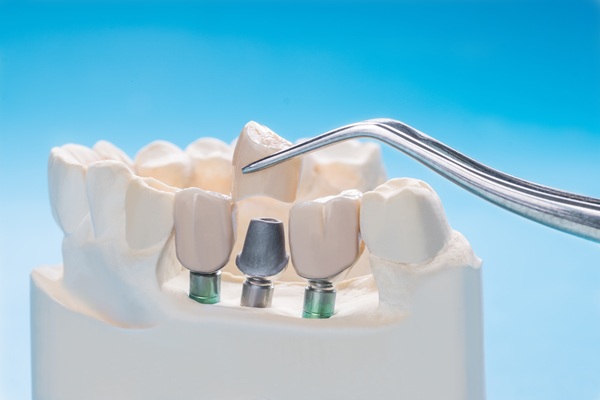Ask a Periodontist: Can a Dental Deep Cleaning Prevent Gum Infections?

If you have been diagnosed with gum disease, you would need to undergo treatment from a periodontist. The condition is prevalent and can wreak havoc on the oral cavity. Fortunately, gum infections can be prevented. Early detection, a good oral hygiene routine, deep dental cleaning,s and visiting the dentist regularly are effective ways to restore gum health and prevent future infections.
An overview of gum infections
In a mild case of gum disease, bacteria accumulate around the gum line (in plaque and tartar) and often create gingivitis. This may cause inflammation or minor bleeding in the gums. Without treatment, gingivitis can worsen into periodontitis, which is the advanced form of gum disease. When plaque and tartar are not cleaned off the teeth, the gum tissue may start to recede. The infection may progress to the bone and cause deterioration. The teeth will become loose in their sockets and may eventually fall out.
How deep dental cleaning treats and prevents gum disease
If the periodontist detects gum disease signs such as gum inflammation, deep gum pockets, or plaque buildup, they will recommend a deep dental cleaning, also called scaling and root planing. This procedure prevents a simple gum inflammation from worsening into periodontitis, the advanced stage of gum disease.
The dental professional will clean plaque from the teeth and periodontal pockets with a scaler and other manual tools. They will also smooth the teeth’s roots so the gums can reattach to them afterward. Scaling and root planing may require more than one dental appointment, depending on the extent of the infection.
The dentist may apply a local anesthetic to reduce discomfort during the procedure. Afterward, they may recommend antibiotics to eliminate any infection present around the teeth and gums. Patients will get the best suggestions for aftercare based on their needs, including diet and oral hygiene routines.
Interestingly, the deep cleaning procedure can also be a preventive treatment against gum infection. The dentist will perform professional dental cleanings during routine dental checkups. Cleaning tartar off the teeth surfaces and other hard-to-reach areas can help prevent bacterial infection.
Gum disease should never be left untreated. The condition can increase the risk of tooth and bone loss. Researchers have also linked the condition to various other health conditions, like heart disease and diabetes.
Other ways to prevent gum infection
Practice good oral hygiene at home by brushing the teeth at least twice daily. A good toothbrush has soft bristles and a tongue and cheek cleaner. The toothpaste should have an ADA seal. Besides brushing, remember to clean between the teeth and under the gumline with a flosser or interdental brushes. An antimicrobial mouthwash and tongue scraper can help reduce bacterial presence in the mouth.
Final note
One major issue with gum disease is that symptoms often do not show until it reaches the advanced stage, which is why patients need to visit the dentist for regular dental checkups and cleanings. If any symptoms related to gum or dental health occur, it is advisable not to wait until the next dental appointment before visiting the dental office. Book an appointment as soon as possible.
Request an appointment here: https://www.periocafe.com or call Brighton Periodontal & Implant Dental Group at (818) 703-7733 for an appointment in our Woodland Hills office.
Check out what others are saying about our dental services on Yelp: Periodontics in Woodland Hills, CA.
Recent Posts
A missing tooth can have consequences on oral health and self-confidence. The good news is that periodontists have several tooth replacement options to restore a patient’s smile, no matter where the lost tooth was located. Whether through surgical or nonsurgical tooth replacements, periodontists can effectively fill gaps in your smile, improve bite function and force,…
Periodontists specialize in periodontal health, which includes the gums and underlying jawbone that supports teeth and dental implants. Many periodontists offer dental implants, and they can provide a great experience for patients who are interested in replacing one or more teeth with dental implants.Dental implants from a periodontist may be right for you if you…
All-on-4 dental implants provide a stable, long-lasting solution for individuals who have lost most or all of their teeth. This advanced treatment approach allows patients to regain both the function and appearance of a natural smile. By strategically placing four dental implants in the jaw, a full arch of prosthetic teeth can be securely supported…
Dental implants are the gold standard of dental replacements. Titanium rods and porcelain crowns are the most stable dental replacements you can get. Once osseointegration ends, you will have a strong, stunning smile again. Knowing the advantages of dental implants can motivate you to see your dentist about getting these restorations. Here are the three…


